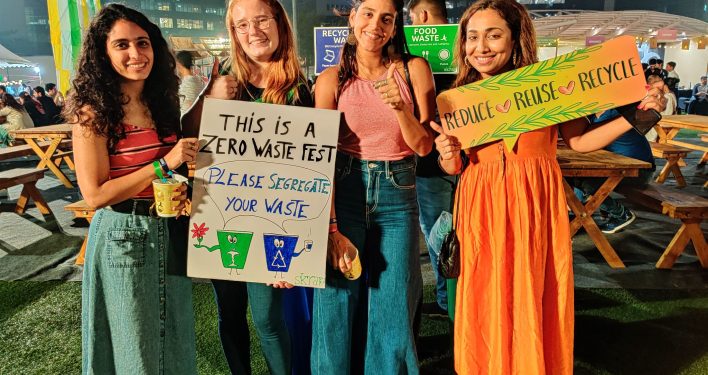Skrap has grown to become one of India’s leading sustainability firms in the last couple of years – with a number of big events like the NH7 weekender, SBI Green Marathon (Mumbai) and waste management at the IPL in Ahmedabad under their belt. In a chat we had with their team to get insights into our Zero-Waste Pledge, we were inspired by the impact they’ve been able to create, and how they continue to engage with and educate people at large events and organisations to significantly reduce their waste. Here is Skrap’s story in their own words, of how they’ve managed to help large events be fun and memorable without coming at a cost to the planet.
_______________________________________
Divya Ravichandran, the Founder and CEO of Skrap, is a music lover who has attended many music and cultural festivals in India. She never noticed the waste generated at events until a fire broke out in the Deonar dumping ground in Mumbai in 2016. That same year the government released the Solid Waste Management Rules, in which, for the first time ever, event organisers were required to manage their waste responsibly. Many organisers were not aware of the new Rules and others weren’t not sure how to implement them. This was a connection that Divya noticed and she devised a way to help them understand what they could do.
Before doing anything else, the first step that Skrap takes is waste audits to help organisers understand the data. Divya explains, “Event organisers would estimate they were generating 200 kgs of waste– when we showed them it was closer to 5000 kgs they were shocked, but it made them understand that zero or low waste management was vital. Our partners are always keen on doing the best they can, and that’s how we are able to create change.” This is why waste audits were so powerful– because they revealed real time information.
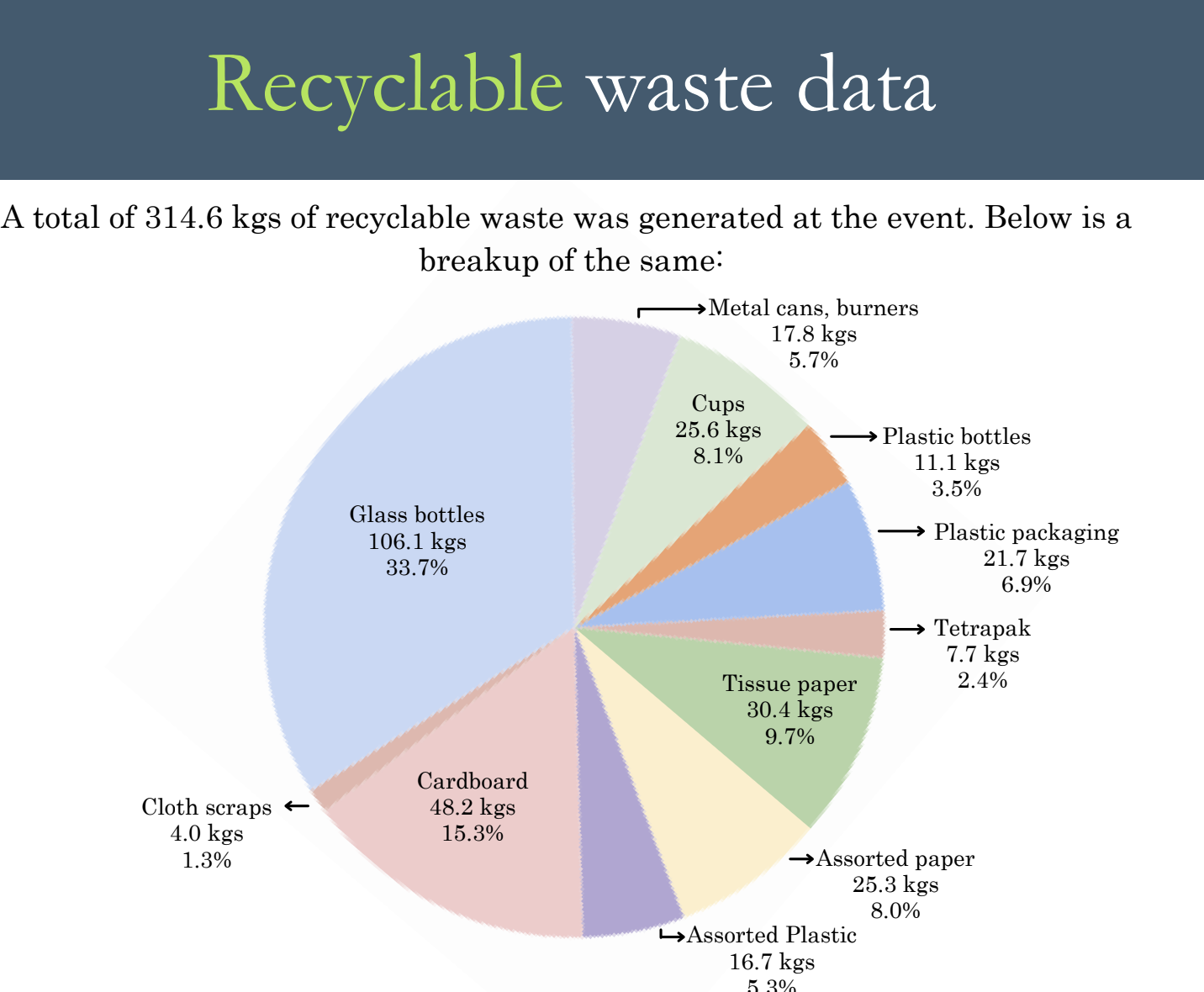
Data matters. When waste impact reports were shared with event organisers, it helped them understand how much waste they were generating.
Much of the work begins before the event itself. Skrap works extremely closely with their partners to look at venue layouts to ensure waste solutions are tailor-made i.e. to know exactly where the waste segregation stations would be placed, or where the waste sorting is going to happen, and where to send the waste after the event.
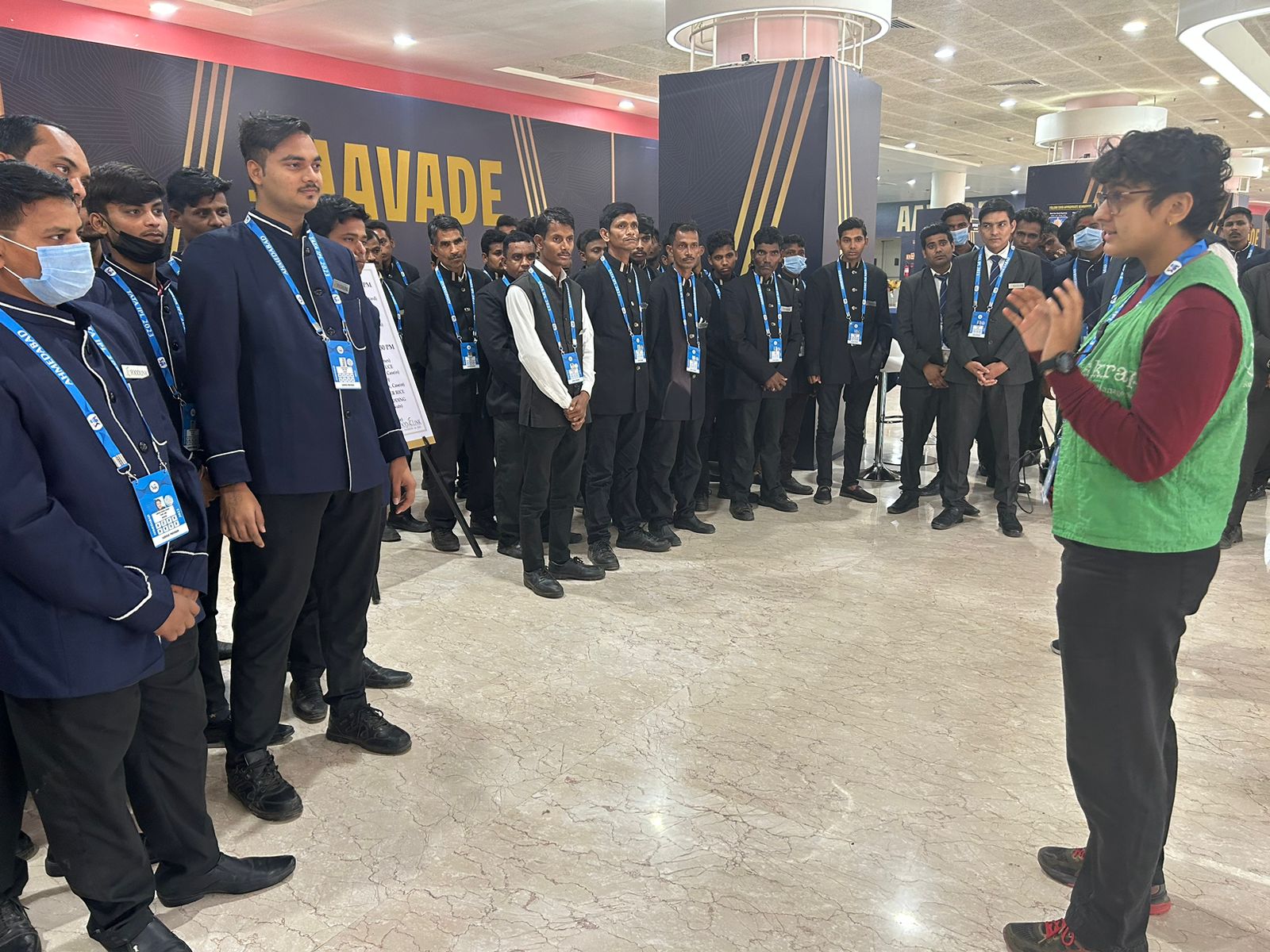
Trainings with the event stakeholders
Spoken Fest which began in 2019 in Mumbai, attracts thousands of fans every year. Skrap has been part of making the festival zero waste from the beginning– including reducing the amount of flex banners used, and encouraging decor made of upcycled materials. Last year, Skrap piloted reusable garbage bags at this event, reducing the need for single use plastic bags and will scale this initiative to other events as well.
Skrap wants to make the work inclusive. From their waste sorting partners, like Stree Mukti Sanghatana, to the housekeeping teams and food vendors at the event site, they make sure that everyone understands why they are implementing waste segregation and understands its impact.
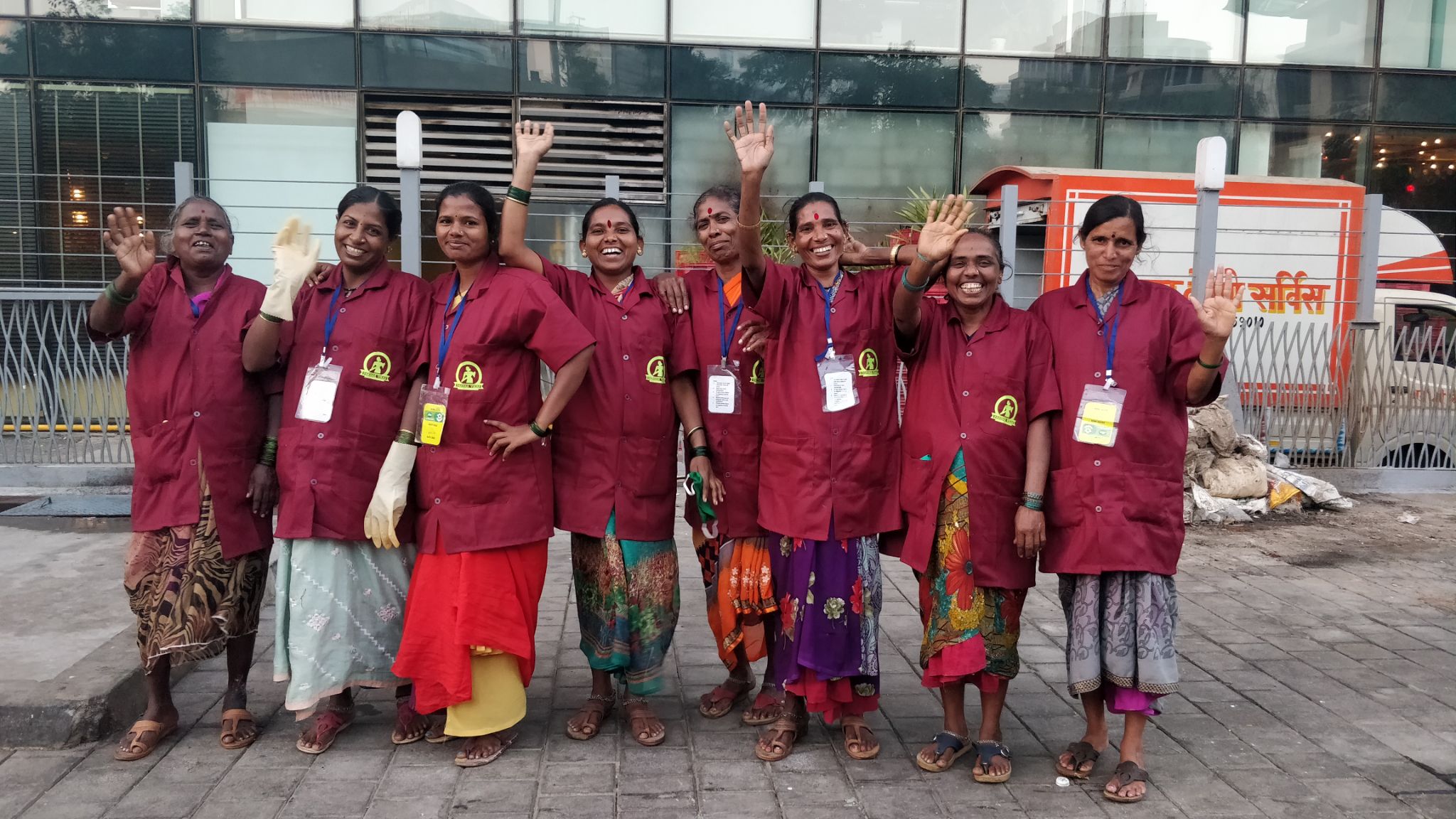
The women from Stree Mukti Sanghatana are the backbone of these events
When people see social media posts or interact with Skrap at events, it helps them strike up conversation with Skrap, asking questions or explaining how the small steps have helped them on their zero waste journey.
Roshan Abbas, actor and co-founder of Spoken Fest says, “I don’t think event organisers realise how important being environmentally responsible is to participants now. To have 7,500 people who come to Spoken Fest realise the difference between what they are carrying to the festival in terms of single use plastic is amazing. They leave the festival knowing how to segregate their waste and why that’s so important. The posters, the interactions with the Skrap team really help the participants, and when we announced that 90% of the waste generated onsite was going to be recycled, that left people feeling really good.”
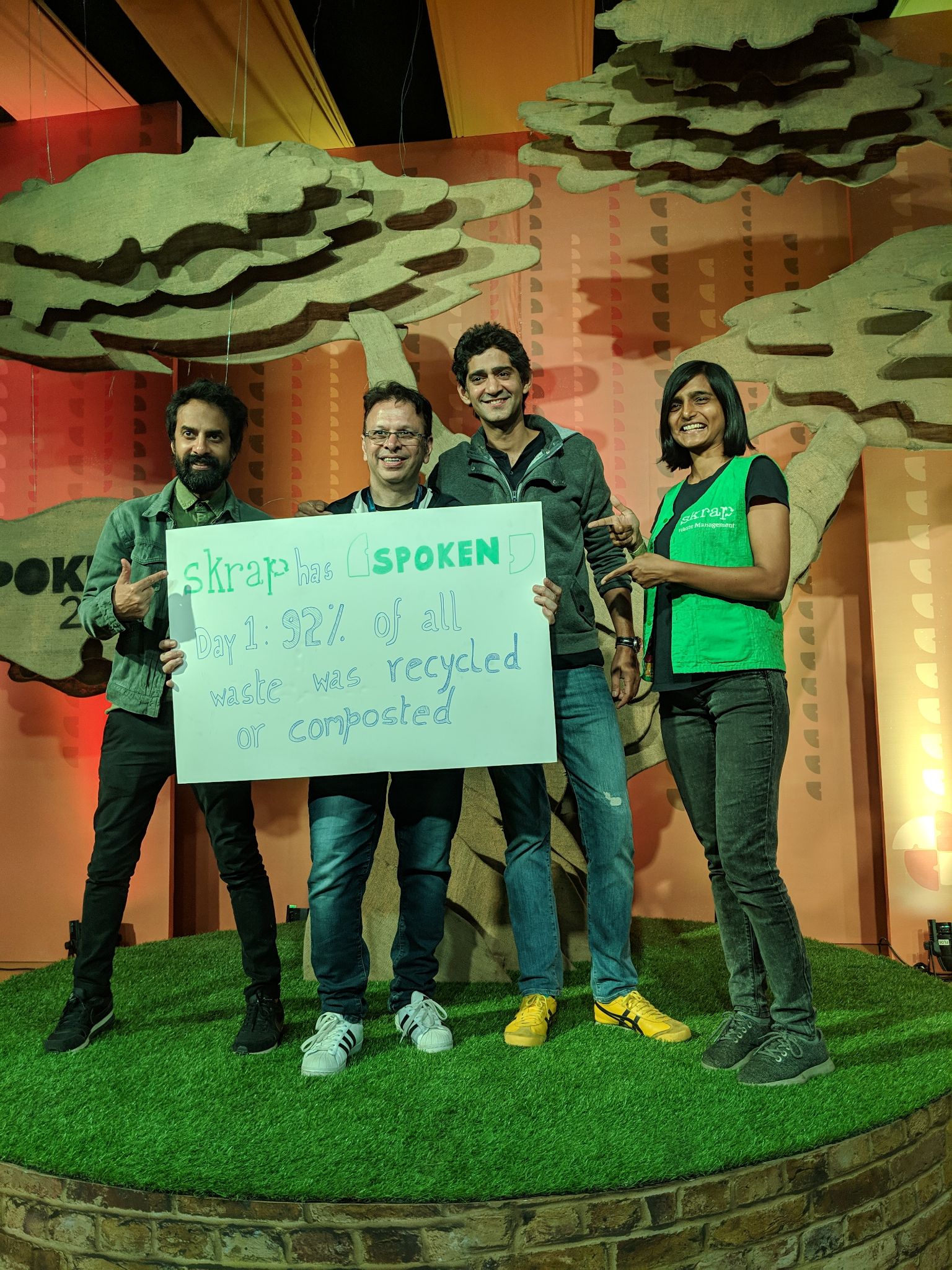
Caption: Roshan Abbas and Divya Ravichandran on stage
With over 150 zero waste events under its belt, Skrap has innovated many times, constantly improving after learning what could be done better. “We started with insisting on segregation at events, and even that was a challenge in 2016, but over the past few years, we have worked closely with our clients, and they want to push the envelope just as much as we do,” Divya explains.
After seeing lakhs of disposable plastic bottles being used at large events, Skrap piloted water refill stations at NH7. Now, the event team has eliminated over 80% of their plastic bottle waste by setting up zero waste water stations. When Skrap learned how much good food was just being thrown away, they decided to set up food donation systems as well. It’s not just plastic waste Skrap cares about– it’s anything that gets wasted.

Artists like T.M. Krishna and Raja Kumari supported the Reusable Cup programme
Skrap continues to push itself and the industry to be more creative on waste management. Skrap is one of the first organisations in India to introduce the Cup Reuse Initiative at NH7 and Bacardi Weekender in 2018 after noticing that plastic cups were being thrown away in the hundreds of thousands. They piloted the Cup Reuse program to encourage fans to reuse their cups at the festival. The festival added an economic incentive – a RS 50 discount on every drink when fans brought back their cups for a refill. Skrap hoped 10% of the attendees would participate in this– but at the end of the event– 70% of people reused their cups at least once.
A participant at the event even Tweeted about the programme, saying it was one of the most memorable parts of the festival for them, which helps organisers know that the effort they make on sustainability gets noticed.
“Most people want to do the right thing,” says Divya. “From our organising partners, to our team on ground, and of course people who come for the events– given the chance, they want to do better. Skrap is supporting that journey.”
By Sweta Daga, Skrap.

